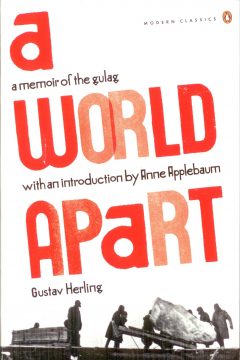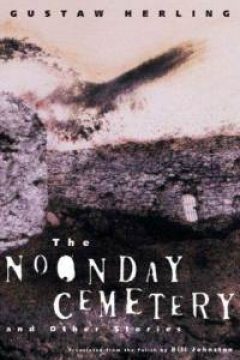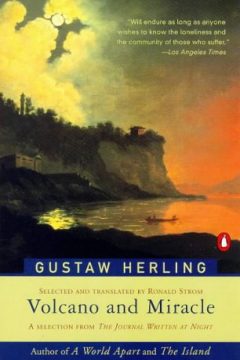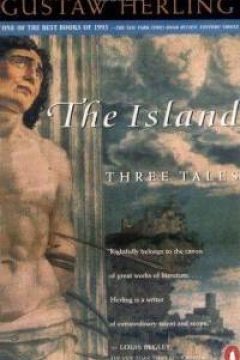A World Apart
 Gustaw Herling (Estate)
Gustaw Herling (Estate)Translated from the Polish by Andrzej Ciołkosz
‘Should be published and read in every country‘ – Albert Camus
In 1940, Gustaw Herling fell into Soviet hands while attempting to join the Polish army in France, and was sent to Yercevo camp in northern Russia. Written years before Solzhenitsyn’s exposés of Russian prisoner camps, A World Apart (1951) is Herling’s compelling, devastating memoir of two years in a ‘house of the dead’ – a witness to the horrors inflicted upon millions of people across the gulag system, slowly dying of hard labour and starvation in the Arctic cold.
He vividly depicts the dehumanizing effects of the camp on his fellow inmates, yearning for liberty yet unable to imagine freedom. But he also describes small glimpses of beauty – even if just the sight of a star-filled sky at night – and the strong friendships that offer hope beyond the desperate reality of life in the gulag.
Reviews
“In psychological and moral penetration and artistic power “A World Apart” equals Fyodor Dostoyevsky’s “House of the Dead”, Aleksandr Solzhenitsyn’s “One Day in the Life of Ivan Denisovich” and Primo Levi’s “Survival in Auschwitz.””
– Louis Begley, The New York Times Book Review
“In the autumn of 1939, Gustaw Herling, then only 20 years old, was already a published journalist and critic, a man certain to win a place in Polish literary circles. But it was not to be. In that same year, Nazi Germany invaded Poland from the West, and the Soviet Union invaded from the East. The Poles fought back, but were crushed by the force of Europe’s two most powerful armies. Thousands tried to escape over the Hungarian, Romanian, and Lithuanian borders, Herling among them. He did not succeed. He was stopped, caught and arrested by Red Army border guards, who demanded to know why he wore high leather boots: Didn’t that mean he was an officer in the Polish army? They also demanded to know about his name, pronounced “Gerling” in Russian: Wasn’t that the same as the name of a famous Luftwaffe Field-Marshall? Despite the absurdity of the charges, they sentenced him for spying and deported him to a concentration camp near Archangelsk, in the Russian far north. For two years, he lived in poorly heated barracks, wrapped rags around his feet to keep warm, ate thin soup and gruel. He probably survived because, on arrival, he traded his suspicious leather boots to a foreman in exchange for a relatively light job.
Herling also survived because of a historical twist of fate: in 1941, following the Nazi invasion of the Soviet Union, Poland and the USSR agreed to a temporary truce. As a result, hundreds of thousands of Polish prisoners were released from Soviet camps, the largest group ever to be freed during Stalin’s lifetime. The amnesty was not accompanied by much good will: Herling himself was allowed to leave only after he held a hunger strike. After an extraordinary journey across the wartime Soviet Union, he finally marched out of Russia with a newly created division of the Polish army, commanded by General Władysław Anders, who had also been in a Soviet prison. Travelling via Persia and Palestine, Herling wound up in Italy, and fought with the Allies at the battle of Monte Cassino. After the war he saw no reason to return to Soviet-dominated Poland. He became a founding editor of Kultura, the celebrated Polish émigré literary review, lived in London and Munich, and finally settled in Naples, where he died in 2000.
Those are the bare facts of Herling’s life. Although they sound exotic to an Anglophone ear, they were not, by the standards of the time, at all unique. There were, after all, many people deported to Soviet concentration camps in those years. There were many Poles who marched the same wartime route, from Eastern Poland to Siberia to Persia to Monte Cassino. There were also many refugees, of many nationalities, who found themselves displaced at the end of the war, and decided to remain in exile. But among all of these people Herling stands out, not because of what happened to him, but because of the honesty and skill with which he was able to convey the essence of his experiences.
A World Apart, Herling’s Gulag memoir and certainly his best known literary work, tells the story of Herling’s captivity – his arrest, his incarceration, his escape – but only incidentally. Most of the book is not about himself, but rather focuses on the experiences of others. He describes women selling themselves for scraps of food; a man secretly pouring boiling water on his wounded arm to escape winter work in the forests; the wheeling and dealing he himself did in order to stay alive; the effects of Soviet propaganda on the mentality of both Russian guards and Russian prisoners; the debilitating mental and physical effects of hunger. Like Primo Levi or Varlam Shalamov, Herling uses direct, simple prose to express both deep pessimism and, at times, an amazing optimism about the human capacity for survival. Although he grapples with deep ethical questions, Herling does so without preachiness, without self-importance, and most of all without any hint of disdain for his subjects.
Herling wrote A World Apart just after the war, when Stalin was still alive, a Stalinist regime ruled Poland, and a book about Stalin’s camps could not be published in Polish. Yet although the book appeared in England in 1951– prefaced by Bertrand Russell, and admired by Camus – A World Apart never won wide renown in the West. Because its author was a Pole, and a Polish émigré at that, it was considered too biased, too “anti-Soviet” to be taken seriously. To prove his bona fides, Herling appended to the first English edition a polemic that he had conducted with eminent Communists, all of whom denied the existence of the camps described in his book.
But the book did eventually appear in Poland’s underground press, where its impact was little short of revolutionary. Long before Solzhenitsyn, a whole generation of young Poles read A World Apart on sheaves of cheap paper, printed with smudgy ink. Over time, Herling’s reputation in his homeland grew: Belatedly, he fulfilled the promise he had shown as a young man. By the time of his death, he had become one of Poland’s most admired post-war literary figures. His obituaries were printed on newspaper front pages, and the whole nation mourned his loss. Among many others who expressed their appreciation was Adam Michnik, a former Polish dissident, who wrote that reading A World Apart at the age of 15 had been a “shock”: “All of the communists’ propaganda was reduced to nothing. I understood that every day, in school, in books, in the newspapers, they were lying to me.”
A World Apart is far less likely to shock any fifteen year old who might read it today. Herling’s prose is no longer required to shatter communist myths, since there is almost no one left who believes them. The polemic with eminent communists now seems redundant, since their eminence long ago faded into obscurity. But now that the Soviet Union has ceased to exist, and now that its concentration camps have been consigned to history, the book’s deeper, universal significance is actually becoming clearer.
Re-reading the book today, A World Apart feels less like a historical account, and more like a timeless meditation on human nature. Ultimately, Herling’s goal was not merely to recount what happened, but also to demonstrate the fragility of what we think of as civilisation. Using subtle but powerful stories, he shows that almost anybody can become corrupt in corrupt surroundings, that almost anybody will lie, cheat, kill or prostitute themselves in order to stay alive. At the same time, he also offers a sliver of hope, evidence that some people do manage to retain their humanity, even in the most inhuman conditions. As long as there are dictatorships, as long as totalitarian regimes persecute their opponents in jails and camps, Herling’s stories of survival will remain as relevant as they were when he wrote them, more than half a century ago.”
-Anne Applebaum, Introduction to the Penguin Modern Classics edition of “A World Apart” (2005)




